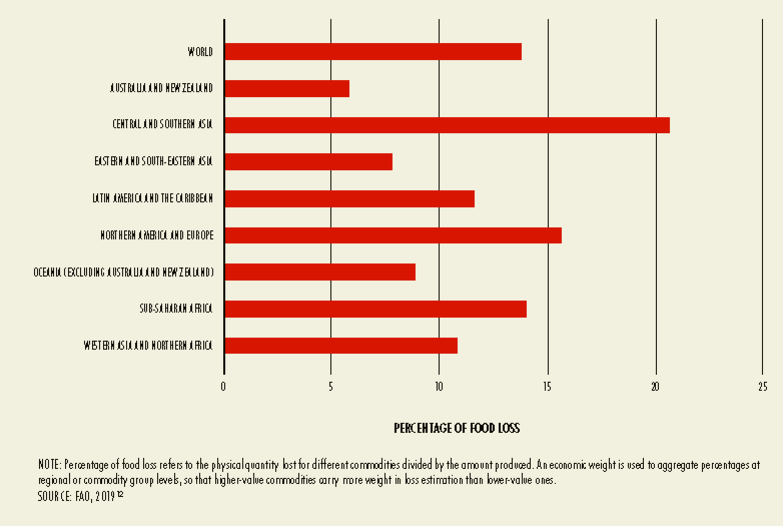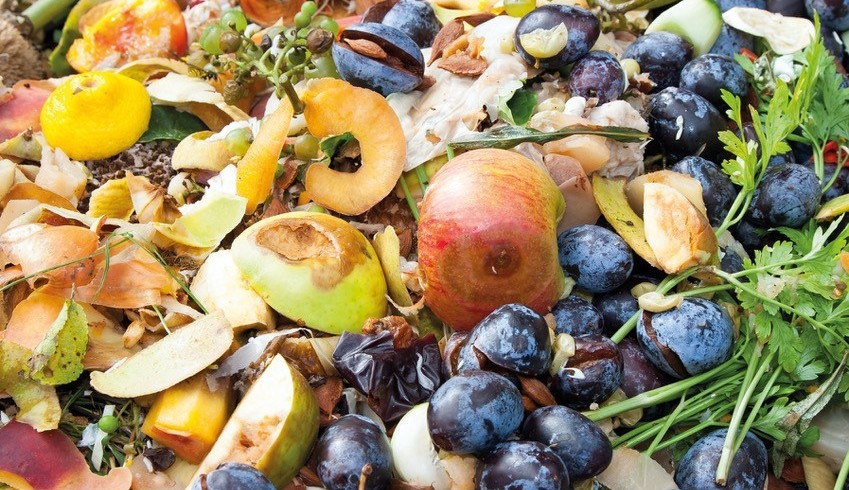Potential worsening of food insecurity: What to do?
With the recent outbreak of Coronavirus (COVID-19), health systems globally have felt the impact first-hand. However, equally as alarming is the food crisis that could potentially worsen due to the interrupted services in the economic and production sectors. This of course includes food production and food supply chain services.
It doesn’t require much to assess the current situation and comprehend the global impact the spread of this disease will have. Although all countries will find it challenging to tackle, the less developed and poor countries and communities will be hit the hardest due to a lack of access to required medical equipment, medication, etc.
Currently, more than 800 million people do not have enough food to eat, and over 2000 million are food insecure. Unfortunately, with the spread of this virus, global food security will decrease at an alarming rate and the above figures may increase drastically. The availability of food will also decrease due to the temporary shutdown of key departments in food production organisations, such as transport, distribution and logistics. Another contributing factor to this decrease is the organisations’ decision to lay off employees working in key departments which slows down the rate of production. In 2 weeks, 2 million jobs have been lost in the USA, the worst in history.

Food loss from postharvest to distribution in 2016, percentages globally and by region. Source: FAO (2019)
It’s been just over three weeks since the initial measures were put in place to combat the spread of this pandemic. Developments such as a majority of people now working from home, the temporary closure of schools/universities/colleges, as well as procedures put in place to limit social contact, have never been experienced before, even during the time of global wars. Recent statistics published reported that the Mexican economy, which needs to grow at least 4%, was projected to experience a growth of 1% in 2020. However, due to the current problem, it has now been suggested that the Mexican economy will experience a growth of 4% negative (-4%). There are further unfortunate scenes around the globe of industries suffering because of the pandemic problem. For example, the organisers of the infamous Amsterdam flower auctions have reported that 80% of the flower industry of the Netherlands were thrown away or destroyed. As a result of this, the auction has been closed for the first time in its 100 years of existence. From what I can see, no strategy has so far been discussed to tackle this predicted global food crisis.
With the key decision makers – such as governments, NGOs and private sector – working from home, the process to developing a solution is interrupted. People globally will be severely impacted by this food crisis, but as always, the ones that will be hit the hardest will be the poor and displaced. Despite organisations such as the FAO confirming that there is a sufficient supply of food globally, we must take it upon ourselves to minimise the possible worsening of food insecurity, as well as the number of food insecure people.
What to do?
Securing food for humanity has never been easy, and it is safe to say that it has never been accomplished. Before the hit of this global pandemic and with economic activities at its optimum, more than 800 million people worldwide still went hungry. For example, Mexico – one of the best countries for food production – reports that two people lose their lives every 24 hours from as a result of a lack of food. Sadly, statistics like the above exists in all countries, even those of great wealth such as the US and the UK.

Now more than ever, it’s extremely important that those from all sectors (UN, academics, scientists, NGOs, private sector, etc) must work collaboratively and direct all of their efforts to this pressing crisis.
However, the general public can also do the following to help fight this crisis:
Do not over consume:
Overconsumption of food can result in the development of health conditions, such as obesity, diabetes and cardiovascular problems. Consuming the suggested daily intake of food is not only healthier for you, but it’s also beneficial to make food available to others.
Do not over buy:
Stockpiling or overbuying only results in problems and holds no benefits. Overbuying results in overconsumption and ultimately, an increase in household food wastage. Grow your own food: Most food items, such as grains, fruit and vegetables can be grown globally, dependent of course on weather conditions and resources available (e.g. field space). Also, with the development of urban farming techniques, people can grow food items from their homes using
rooftop farms, greenhouses or miniature gardens.
Process and preserve your food:
There are many food preserving processes that are available and easily completed whilst at home. These processes maintain food life for longer, which in turn reduces the amount of food wasted. For example, some fresh food items can be kept fresh for longer using a combination of refrigeration and exposure to high humidity. Some types of food items can keep for years after freezing or drying. The drying process of food can be performed using the following methods at home: sun (natural) drying, oven drying or drying using sugar or salts.
STOP wasting food:
We must learn to appreciate the food we have and stop wasting the food we do not need. The wastage of food has only worsened with the growth of affluence in countries worldwide. As a result of this, food insecurity is at its highest as demand is outweighing product and there is simply not enough food to feed those who are food secure and food insecure. An immediate solution to worsened food insecurity is to drastically reduce food losses and waste, especially in
affluent countries and communities. It is a time where both determination and collaboration is needed to tackle this global food crisis and stop it from resulting in global devastation.
Please keep safe.
Elhadi M. Yahia
About the blog
This blog has been written by Professor Elhadi M. Yahia, Professor and Senior Research Scientist at the Autonomous University of Querétaro, Mexico. He is also a Courtesy Professor at the University of Florida, USA.
About the author
Prof. Yahia has published 20 books in 3 languages and more than 300 book chapters and articles on post-harvest handling of fresh produce. He has worked at the Food and Agriculture Organization of the United Nations (FAO) where he helped launch the Global Initiative on Food Loss and Waste Reduction. He has served as a consultant to many organizations such as the FAO, the World Bank, the Asian Development Bank, the World Food Logistics Organization (WFLO), USAID, USDA and ICARDA. He is member of the Mexican Academy of Sciences, the New York Academy of Sciences, The Scientific Research Society (Sigma Xi) and The Scientific Advisory Council (SAC) of the World Food Logistics Organization.
Prof. Yahia's latest book Preventing food losses and waste to achieve food security and sustainability published by Burleigh Dodds Science Publishing provides a comprehensive review of the causes and prevention of food losses and waste at key steps in the supply chain, for different commodities and across particular regions.
New titles









